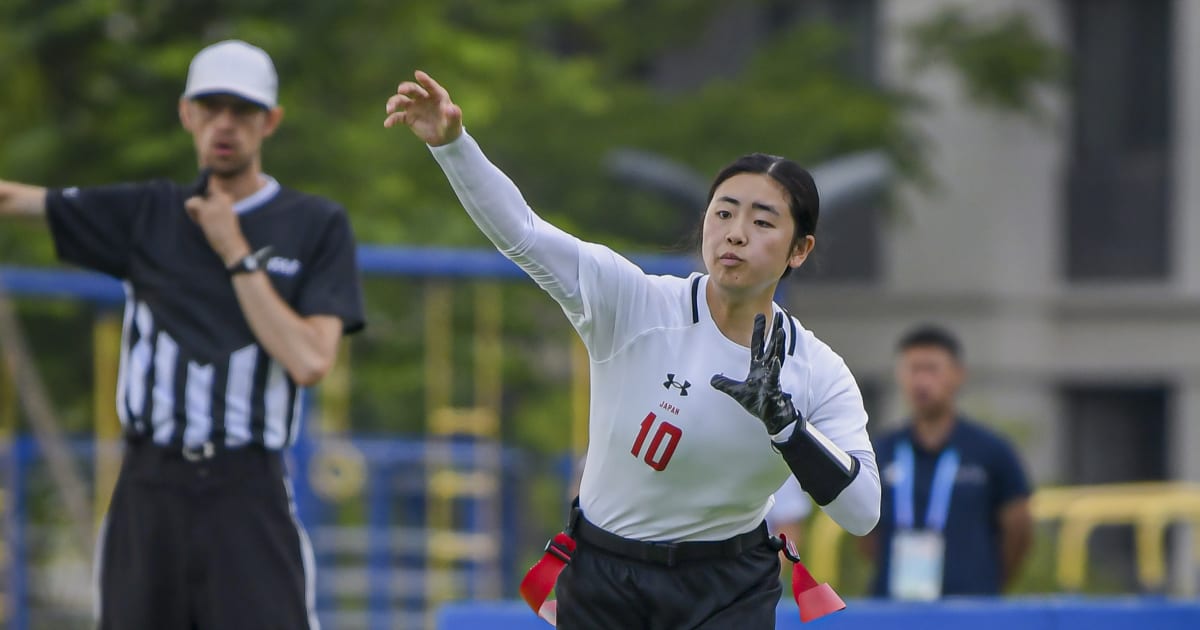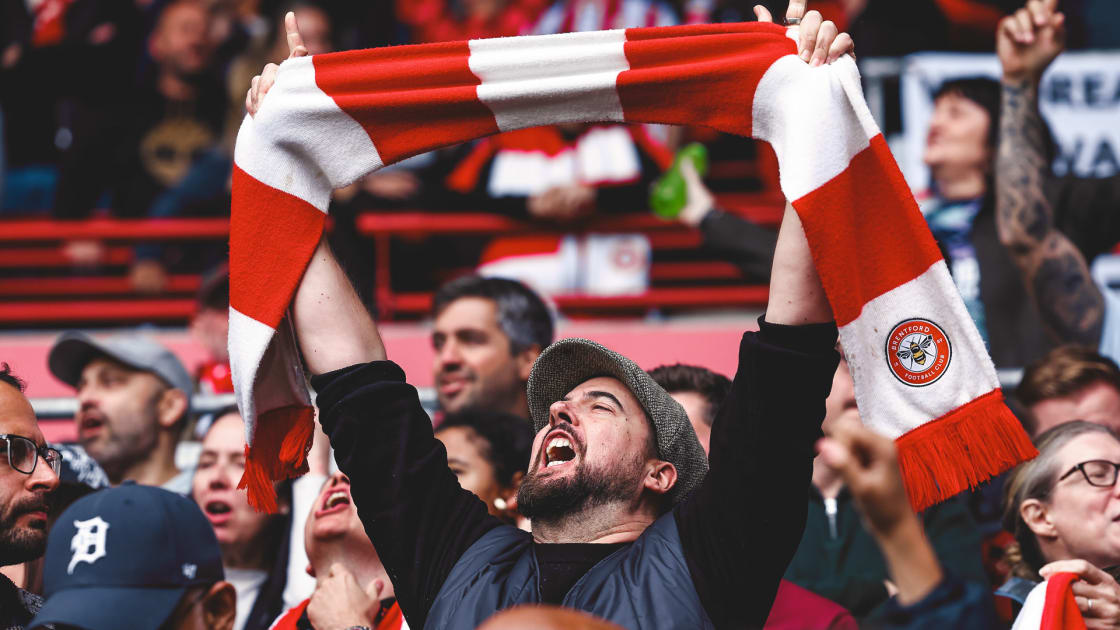“Flag football is a space where I can express myself”

Iwata Chihiro doesn’t quite remember if she found flag football fun when she first tried it.Then, just six years old, she had started playing the sport after being invited to join by her older brother’s friends. She tagged along and then found herself going back again. And then again.“Before I knew it, I was playing too,” the Japanese quarterback tells Olympics.com, looking back on a simple start that sparked a remarkable life’s journey.Today, Iwata is one of the rising stars on the global scene.Currently studying at Kansas Wesleyan University on a scholarship, she is at the vanguard of international flag players capitalising on life-changing opportunities to play in the United States as the sport continues to globalise.And it’s having an immediate impact.The 21-year-old world bronze medallist is poised to lead Japan’s women’s team as they mount their title defence at the IFAF Asia-Oceania Flag Football Championships 2025, beginning on Friday (24th October) in Ningbo, People’s Republic of China.Following a disappointing seventh-place finish at The World Games 2025, the world No. 3 team will look to reassert its dominance in the region. And with no shortage of contenders emerging, the road ahead, with the LA28 Olympics as its ultimate destination, is sure to be littered with challenges.But if, for a moment, the responsibility seems at all burdensome, Iwata doesn’t let it show.A love of process and an astute self-awareness guide the quarterback now, just as they did in the beginning when she set down her path. That much is plain as she continues her origin story.“When I first started, I was on a mixed team with boys rather than a girls’ team. I’ve always been shy and introverted, so I think I felt a bit nervous about meeting new teammates and practising with energetic boys,” she says.“I think what kept me going was the joy I felt when I was able to do something I couldn’t do before, or when I was praised for improving. Back then, I didn’t think too deeply about why I continued playing, and since I wasn’t the type to take initiative, going to practice every weekend with my dad and brother just felt like a normal part of my routine, almost like going to a weekly lesson.”Australia's Olivia Manfre embracing being a flag football pioneer: "All of this started with a 'what if?'"Nausicaa Dell’Orto: “Football is not only a sport, it’s something that saved me”Iwata Chihiro: The moment a dream became a possibilityAs Iwata grew, so did her talent.Her baseball-loving father’s early insistence on throwing from kindergarten age made her an ideal candidate for quarterback. And as she developed, her command over the more cerebral dimension of the game followed.It wasn’t all that long before the national team came calling, but for Iwata, selection appeared to clash with another dream.Her older brother, three years her senior, had studied abroad in high school, and his experience had given her the kernel of an idea to do the same. But as she became more involved with school and flag football in Japan, the possibility of combining study abroad and playing seemed too distant.“Looking back, I think I used ‘having things I wanted to do in Japan’ as an excuse to avoid seriously preparing for it,” Iwata says.That mood, however, later shifted when her parents discovered opportunities in the United States where Iwata could earnestly do both.“Once I entered university, I started taking concrete steps — reaching out to coaches at American universities, with help from my family, and asking American players I’d met in international competitions about how to apply to their schools,” she explains.“In August 2023, I visited the U.S. for campus tours and even got the chance to join practices with some university teams. Just before returning to Japan, one of the coaches from a school I had practised with contacted me and offered me a scholarship.“That was the moment when studying and playing abroad for flag football suddenly became a real possibility for me.”Iwata Chihiro: "Many of them probably found me mysterious"In January 2024, Iwata arrived in Kansas as Japan’s first-ever flag football export and went straight into the rigorous practice with the season starting a short month later.Anxiety, she says, was close at hand as she adjusted to life away from family and communicating in English, but, at the same time, her resolve hardened as she met the early difficulties head-on.“It was harder for me to imagine staying in Japan, graduating from university, and getting a regular job somewhere. I was more afraid that if I did that, I’d be turning away from what I was truly passionate about. So I was able to accept the uncertainty of a new environment relatively calmly.”A typical college day ends with classes around three o'clock in the afternoon, followed by over two hours of team meetings and practice. On some mornings, she might have practice or a weight training session before class. Add in the challenge of adapting to life in a second language, and Iwata's day can feel particularly prolonged.“My first semester, I didn’t talk much, so I think many of them probably found me mysterious,” she says, remembering how she tried to first fit in.“I still sometimes struggle to express my thoughts or instructions clearly in English. Even so, my teammates try to understand me, they’ll interpret what I’m trying to say and ask, “Do you mean this or that?” which really helps.”The encouragement of those teammates helped the Japanese flag star find her feet, and the language barriers off the field soon melted once she assumed her position on it. While they appreciated her more polished and meticulous technique, she admired their athleticism and speed and now had a voice among them.“One of the reasons I decided to study abroad was because I wanted to change myself, so I honestly feel that I’ve gained far more than I’ve lost," she says of the experience that is now setting her apart as an athlete.“Being apart from my family and friends in Japan has helped me rediscover the importance of spending time with people and how to build deeper relationships, so overall, I think it’s been a really positive experience."“In the beginning, I felt most like my true self during practice, which reminded me how amazing sports can be.” - Iwata ChihiroThe endless possibilities of the OlympicsOnce, never imagining she might be able to study abroad and play flag football, now there is the possibility that Iwata’s sport might take her to sports’ greatest stage.The discipline of flag is set to debut at the Olympic Games Los Angeles 2028, where six men’s teams and six women’s teams will battle for gold. And, in a decision made earlier this year, NFL players have been permitted to compete, heightening the spotlight on the sport.For Japan, like all competitive nations, securing a quota will be a big ask, but it is one Iwata will be expected to guide them towards, not least with her experience advantage.“I think having what was once considered a minor sport featured in the Olympics will inspire many players to aim for that level, and it will open up new possibilities for a lot of people,” Iwata says, excited for flag football’s inclusion in LA.“The Olympics will also give players a chance to reflect on what they can contribute to their teams and encourage more people to think deeply about flag football, which will help the sport develop in the future.“It might even inspire people to start businesses that promote the sport’s appeal to a wider audience, or to become coaches who teach the next generation of female players, passing on skills and the joy of improving.”As for whether the Games specifically are a goal for her, a diffident Iwata avoids completely committing to the idea, but the allure of the challenge undoubtedly speaks to the quarterback’s inner competitor.“The chance to become an athlete who can devote everything to one major event, working to improve both myself and my team, is an extremely rare and meaningful opportunity,” she says, musing on the Olympics."Competing and growing in an even more competitive environment won’t just help me develop as a player; I think it will also teach me important lessons about personal and collective growth that I can carry beyond the sport itself."And while there are more pressing tasks ahead, for those eagerly awaiting flag football's Olympic arrival, there are perhaps few better stories of how transformative the sport can be in a life than Iwata's.There is the athlete who has evolved through opportunity and success into one of the world's best, and there is the person, still admittedly introverted and relatively shy, who becomes a happier, more empowered person with a ball in hand.“Through flag football, I’ve been able to meet many different people, experience new environments, and see all kinds of places. For me, flag football is a space where I can express myself. Especially when it comes to connecting with players or coaches from overseas, I feel that showing my play helps me get closer to them faster than through words.“Whether I’m playing or not, I think my calm and easygoing personality stays the same, but I probably smile more when I’m playing.”









